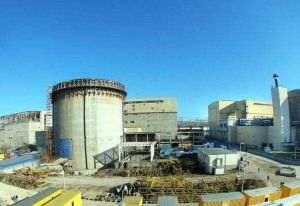Donald Trump's announcement over the weekend of a meeting with Vladimir Putin, to be held on August 15 in Alaska, took European leaders by surprise and sent a clear message: the current US president does not intend to consult with NATO partners before making major decisions in global politics.
Confirmed by the Kremlin and the White House, the meeting between the two leaders is expected to have the war in Ukraine on the agenda, but without President Volodymyr Zelensky being invited. According to information published by Bloomberg, among the scenarios under discussion is a ceasefire that would leave Crimea and Donbass under Russian control, an idea that Kiev categorically rejects, even though President Trump has stated that a territorial exchange is needed to end the war in Ukraine.
"We will not give land to the occupiers,” Volodymyr Zelensky said, warning that such a precedent would undermine not only the territorial integrity of Ukraine but also the security of all of Europe.
Donald Trump does not consider the presence of the Ukrainian leader mandatory, although a White House spokesman said he would be "open” to a possible trilateral summit, a summit that Kremlin officials would like to organize after President Putin reaches an agreement with the American president. Vice President J.D. Vance reaffirmed the US intention to limit its financial involvement in the conflict: "The US is done financing the war in Ukraine.” He noted that if European allies want to buy American military equipment and then sell it to Ukraine, the US will continue to conduct such trade.
In this context, NATO Secretary General Mark Rutte acknowledged that future peace talks cannot bypass the issue of territories under Russian control, emphasizing the difference between "de facto” and "de jure” recognition. Rutte said that "Russia currently controls part of Ukrainian territory,” but added that Ukraine will decide its own future.
From Warsaw, Prime Minister Donald Tusk sent a categorical message that "the West will not accept any agreement concluded in Alaska if Ukraine is forced to cede territory” and added that "decisions on Ukraine must be taken with Ukraine.” In turn, the head of European diplomacy, Kaja Kallas, convened an extraordinary meeting of foreign ministers from member states last Sunday to determine the "next steps” of the European Union, a meeting that took place online, while German Chancellor Friedrich Merz insisted that any peace plan must be negotiated with the direct participation of Kiev. The same sentiment was expressed by the President of France, Emmanuel Macron, who signed a declaration together with the political leaders of Italy, Germany, the United Kingdom, Finland and the President of the European Commission, welcoming the efforts of the American president to stop the massacre in Ukraine and showing that the EU is ready to support this action diplomatically as well as by maintaining the substantial military and financial support granted to Ukraine.
The Ukrainian Ambassador to Germany, Oleksii Makeiev, warned in the Berlin press that "if the second cession comes, the third one will come" and stressed that "it is not just about territories, but about people's rights and dignity", recalling the consequences of the annexations made by the Russian Federation in 2014 and 2015. At the same time, the Mayor of Kiev, Vitali Klitschko, acknowledged the pressure felt after more than three years of war. In an interview with the German newspaper Bild, Klitschko said that "every Ukrainian citizen is tired of this war", but advocated a diplomatic solution, stating that "it is far too early to talk about territorial cessions" and that the difficult decision in this regard belongs exclusively to President Volodymyr Zelensky.
In these circumstances, the Trump-Putin meeting in Alaska is shaping up to be a turning point: for Washington, an opportunity to reduce direct involvement; for Moscow, the opportunity for informal recognition of territorial gains; for Europe and Ukraine, an essential test of unity and the ability to defend their principles, with the major question of whether August 15 will bring the beginning of peace or a new stage of geopolitical tensions.
• Emergency meeting called by Friedrich Merz
German Chancellor FriedrichMerz has called a video conference for Wednesday in view of the summit between Presidents Trump and Putin, scheduled for Friday in Alaska. The meeting will be attended, in addition to Merz, by Ukrainian President Volodymyr Zelensky, US President Donald Trump, as well as French President Emmanuel Macron, British Prime Minister Keir Starmer, Italian Prime Minister Giorgia Meloni, Polish Prime Minister Donald Tusk, European Commission President Ursula von der Leyen and NATO Secretary General Mark Rutte, according to information provided by the daily Bild.
Prior to this move, several MEPs (chairmen of committees in the European Parliament), members of the EPP and the S&D Alliance sent a firm message yesterday on the Strasbourg institution's website: no peace agreement in Ukraine can be achieved without the full participation of the Ukrainian leadership and without the support of the Ukrainian people.
They welcome any initiative, such as the meeting convened by Chancellor Friedrich Merz, that seeks a just and lasting peace based on international law, the UN Charter and the accountability of those responsible for war crimes, but warn that any plan that ignores Ukraine's will or rewards Russian aggression is not only unjust but also dangerous for the security of the whole of Europe.
Furthermore, the EPP and S&D representatives underline that peace negotiations must start with an unconditional ceasefire and draw attention to the disingenuous proposals from Russia in recent months, which reflect the intention to prolong the war. The European Union, its Member States and all trusted partners are urged to remain united and resolute in their political, economic, military and humanitarian support to Ukraine until a comprehensive, just and lasting peace is achieved, in accordance with international law and the aspirations of the Ukrainian people.















































